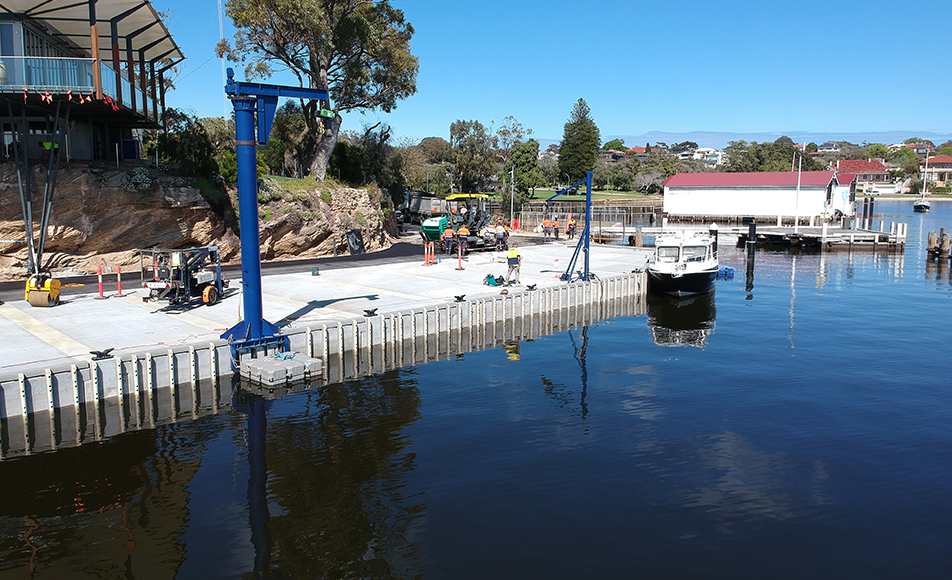RFBYC Wharf Replacement
Client:
Royal Freshwater Bay Yacht Club
Construction Period:
May 2021 – October 2021
Superintendent:
Rhys Spicer
Total Value:
$1,833,000 + GST

This project involved the demolition of the existing wharf and the installation of a new precast concrete wharf.
The project included:
- All work needed to be completed whilst the yacht club remained operational;
- Demolition of the existing wharf using a combination of an excavator, barges and dive team in a safe and controlled manner;
- Supply and install piles using specialized piling equipment;
- Testing of piles to prove capacity;
- Pile corrosion protection including painting, HDPE sleeves, Denso wrapping and Anodes;
- Installation of precast concrete decking over water;
- Hydraulic and Electrical services to the new jetties;
- Jetty furniture such as kerbs, fenders and a crane jib;
Key risks and complications that arose and how they were managed:
- Working in an operational Yacht Club meant that the operations of the club and club users had priority over the works. Advanteering reduced the footprint of the work area to ensure maximum use of the club facilities by the patrons of the club.
- Working over water always comes with challenges. Advanteering constantly monitored the weather, sea state, tides and vessels to ensure the work could be completed safely and on time.
- Difficult piling conditions in varying riverbed soils were encountered so Advanteering had to use a combination of different piling hammers to install the piles.
- The club needed the work to be completed during winter whilst the club was not as busy. Thus Advanteering had to deal with higher tides which required much of the work to be completed underwater using divers.
- Advanteering has Project Managers who are fully qualified Engineers with extensive marine experience. Several design issues were picked up by Advanteering early to avoid expensive and time-consuming rework.
- Due to working in an environmentally sensitive area, Advanteering completed a Construction Environmental Management Plan which was reviewed and approved by the DBCA (Swan River Trust) prior to starting work. Certain measures had to be put in place to reduce the risk of adverse environmental impact.











